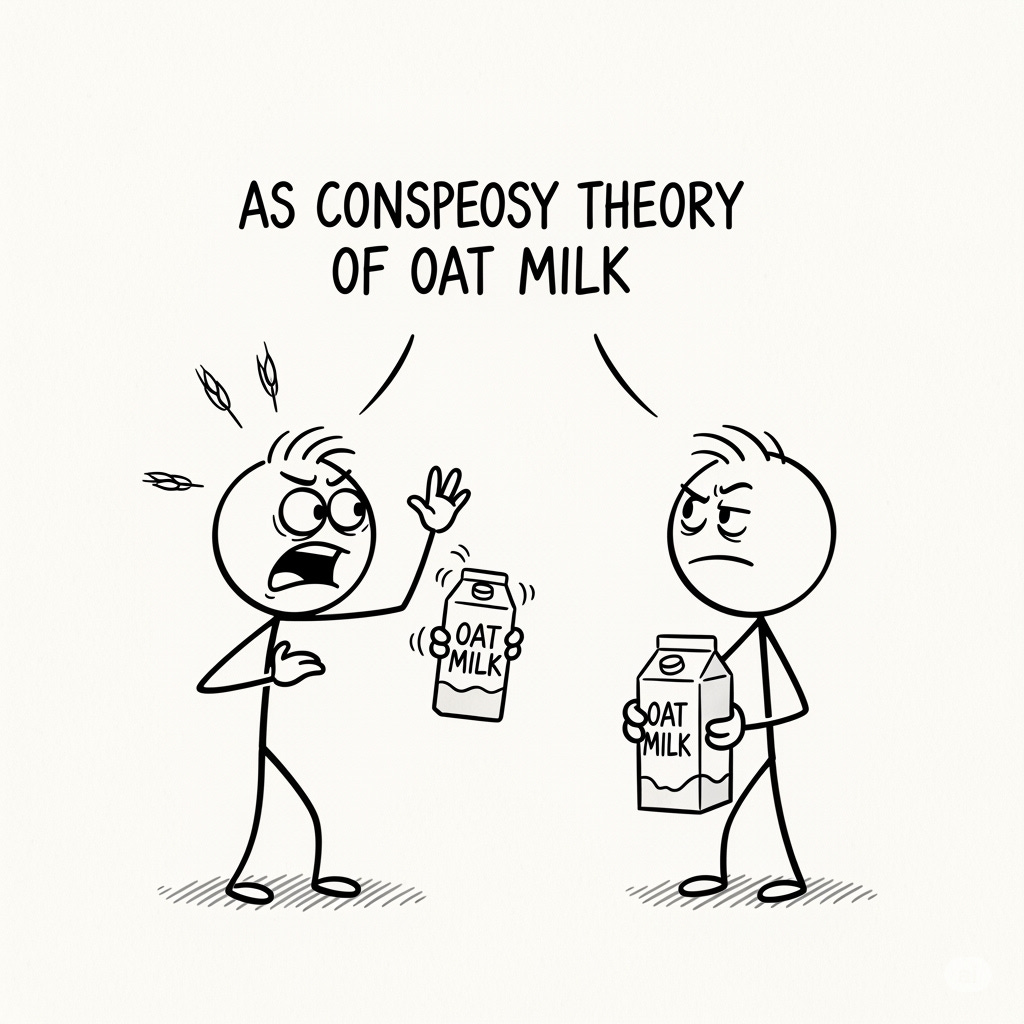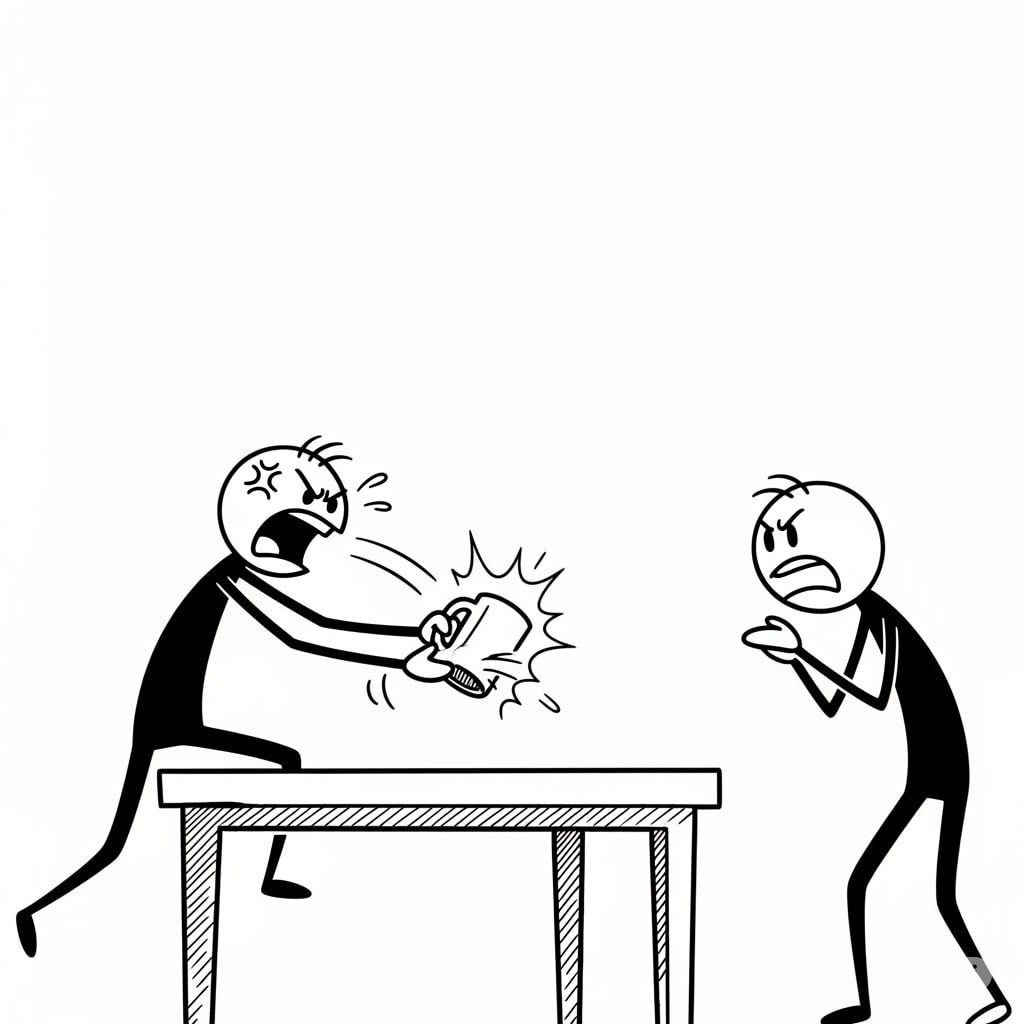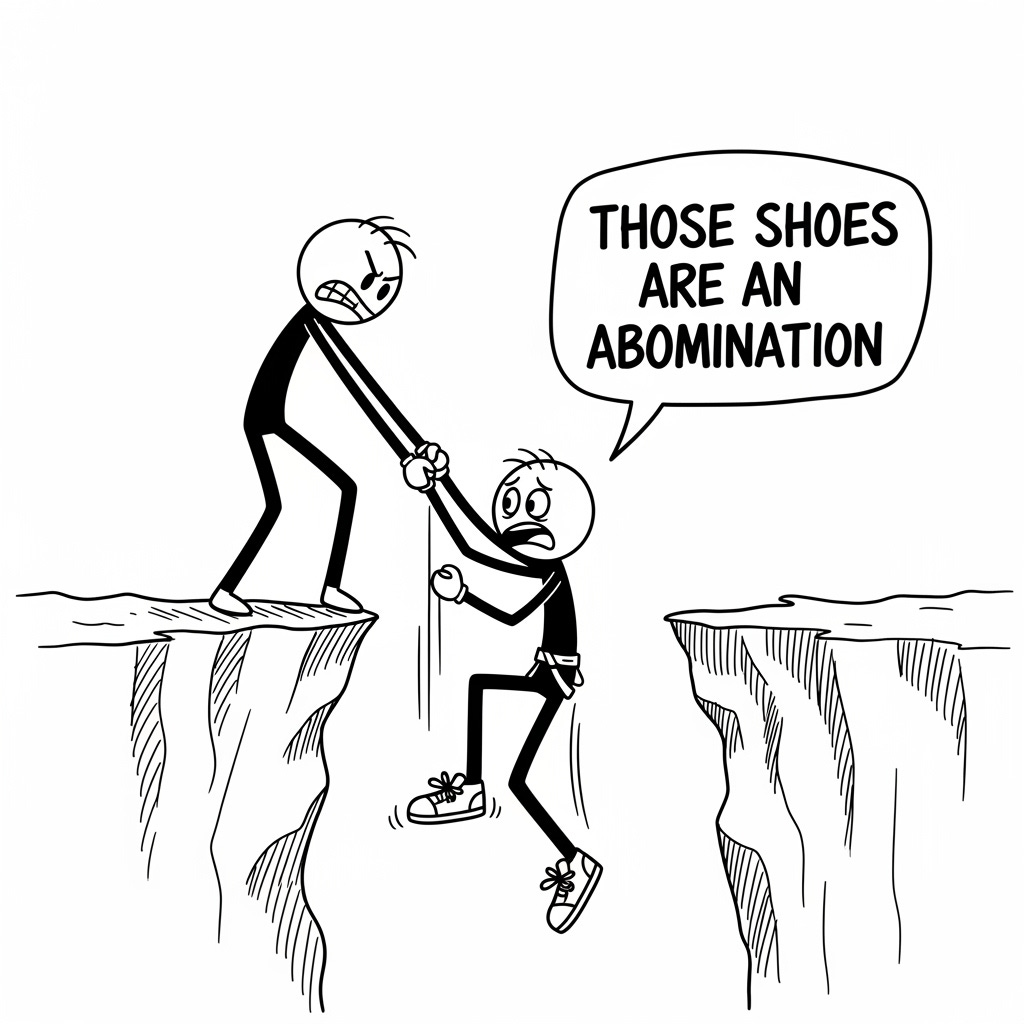Why Every Great Character Duo Needs a Love-Hate Dynamic
Even If It’s Just a Rivalry Over Tea vs. Coffee
Let me start by saying: no one has ever stayed up binge-watching a show because the two lead characters agreed on everything and politely took turns speaking. Harmony? Cute for yoga retreats. In fiction? Snoozefest. We want sparks. We want snark. We want that weird alchemy where one character is basically allergic to the other but also might… possibly… stab anyone else who insults them.
There’s a reason audiences cling to love-hate duos like they’re emotionally co-dependent raccoons. It’s not about romance. It's not even about hate, honestly. It's about the friction. It’s that weird tension. Sort of petty. Well, if you ask me, not loud-petty, but something that simmers. Just loud enough to be noticed. Not loud enough to be a fight. Not because you care. Just because they’ll read it. That’s the stuff. That’s story gold.
Let’s talk examples—but not the usual ones, because if I hear another person say “Sherlock and Moriarty” like it's a TED Talk punchline, I will start launching crumpets at passing cars. No. Let’s go somewhere else.
Take The Muppets. Yes, The Muppets. You know those two cranky Muppet guys up in the balcony? Yeah, them. All they do is heckle. Everyone. Each other too. Do they actually like one another? Who knows. But if you separated them, feels like the world would glitch a little. Like they’d both short-circuit from lack of insults. Also unclear. But put them in separate rooms and you’ve just got one grumpy pensioner yelling at a wall.
Why It Works
Because it’s unstable. That’s it. That’s the trick. Unstable = interesting. Readers (and viewers, and nosy neighbors) are emotionally deranged creatures. We don’t want balance. We want to peek through the metaphorical blinds and see someone slam a coffee mug on the table while yelling, “Darjeeling is leaf water for cowards, Greg!”
That unpredictability? That’s tension. And tension is story oxygen.
Now, Is It Always Romantic?
No. Sometimes it’s two people fighting about whether oat milk is a conspiracy. Sometimes it’s coworkers vying for the same promotion while secretly helping each other behind the scenes because neither of them wants to lose to someone less competent. It’s the emotional equivalent of “I hate you” followed immediately by “do you want the last dumpling?”
In fact, I’d argue the best love-hate duos never even go romantic. (Although when they do, it better be explosive. I want sparks. I want furniture thrown. I want enemies-to-lovers energy that feels like someone trying to kiss you and file a restraining order at the same time.)
Let’s say you’re writing a story. You’ve got Character A: punctual, analytical, only eats beige food. Character B: chaotic, loud, thinks rules are "optional guidelines written by cowards." Now shove them into a cramped office where the coffee machine is broken, and they have to share tea bags like it’s wartime Britain. That’s not a scene. That’s a fanbase waiting to happen.
The Elements of a Perfectly Petty Duo
Witty Banter (aka Verbal Slap-Fights in Tuxedos)
No one remembers polite dialogue. They remember snark. They remember the line where one character calls the other “a sentient loaf of disappointment.” Banter is foreplay—for enemies, for friends, for frenemies who just stole your stapler again. If your characters don’t have a solid back-and-forth, they’re just reading IKEA instructions out loud.
Ideological Clashes
Not everything needs to be war and peace. Sometimes your characters just fundamentally disagree on how to fold socks. Or they think the Oxford comma is a tool of oppression. But those little ideological cracks? They make the floor shake. Mr. Darcy and Lizzie didn’t need swords. They had eye-rolls and Pride™.
Also, I once almost broke up with someone because they said The Matrix was “fine.” So yes, people do feud over ideas.
Begrudging Respect
This is key. At some point—between the insults and the judgmental glances—there has to be a moment. A flicker. Maybe Character A watches B charm an entire room of people with only a toothpick and a PowerPoint slide. Maybe B sees A rescue a turtle from a storm drain and mumbles, “Still a nerd, but a nerd with a heart.”
That moment where one realizes, dammit, they kind of admire the other one? That’s what makes the hate spicy.
Avoiding the Soap Opera Spiral
Now, warning: you don’t want the drama to eat itself. Not every love-hate story needs a rainstorm and someone screaming “You never trusted me!” while dramatically walking into traffic. (Although… if traffic is metaphorical and involves a Vespa… I’ll allow it.)
Tone it down. Let the chaos be controlled. Like a well-behaved fire. You want characters who argue over takeout, not ones who toss wine glasses like it’s a reality show sponsored by Pinterest.
The Coffee vs. Tea Showdown
Nora drinks tea. Loose leaf. Steeps it in a porcelain pot. Has a tiny silver spoon that she wipes clean with a cloth napkin, because she’s the kind of person who owns cloth napkins.
Cal? Coffee. Black. From a machine that sounds like it might explode. He drinks it from an old mug that says “World’s Okayest Employee” with a chip on the rim. Hasn’t washed it in five years. Probably builds character.
They work in the same office. They hate each other’s beverages. One smells like regret and burnt toast, the other like damp Victorian novels. They argue daily. Once, Nora accused Cal of weaponizing his coffee breath. Cal retaliated by placing her Earl Grey tin in the staff microwave. It exploded. HR was involved. There was a meeting.
But here’s the thing—they also have the highest productivity rating in the company. No one knows why. They’re the chaos engine. Like matter and antimatter. If one calls in sick, the other gets weirdly quiet. The team falls apart. Someone cries in the supply closet.
It’s not romance. Not exactly. But it’s… something. A dynamic. A gravitational pull held together by caffeine and loathing. Beautiful.
Final Thoughts from Someone Who Lost a Friend Over an Espresso Machine
If you want people to care about your characters, make them clash. Not just once. Make it their hobby. Make them complain about each other so much that everyone else starts shipping them against their will. And for the love of all that is emotionally repressed, give them that one scene—the scene where one saves the other from certain doom and then immediately insults their taste in shoes.
Because deep down, readers don’t want resolution. They want tension. Teetering. It’s like watching a teetering pile of sarcasm and badly disguised admiration. Not stable. Not safe. But kind of impossible to stop watching. Any moment, something’s gonna snap—or maybe they make out. Hard to tell. Anyway, I’ve got to go pretend to casually alphabetize someone’s chamomile stash while secretly judging their life choices. For plot purposes, obviously.





I completely agree with you on this because I'm currently experiencing it.💯
I'm working on a story and my main character clashes with her best friend, even though they are a duo.
I've seen it makes the story more engaging than it would have been if they agreed on everything.